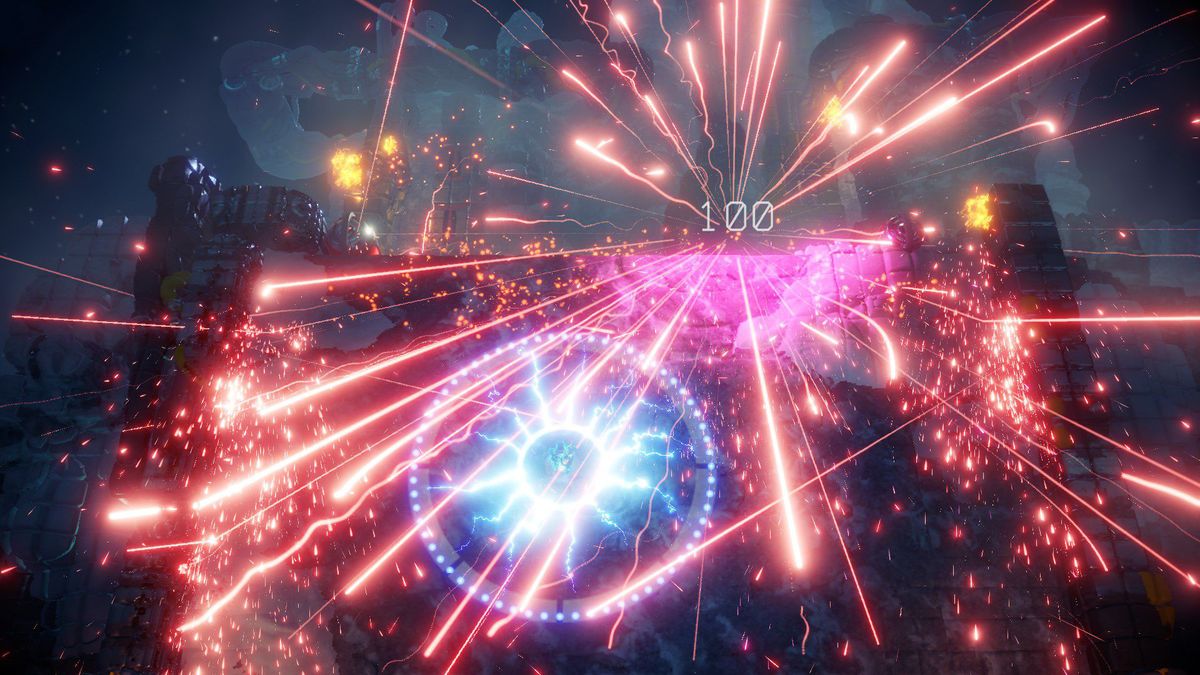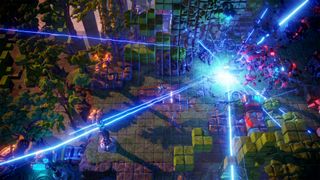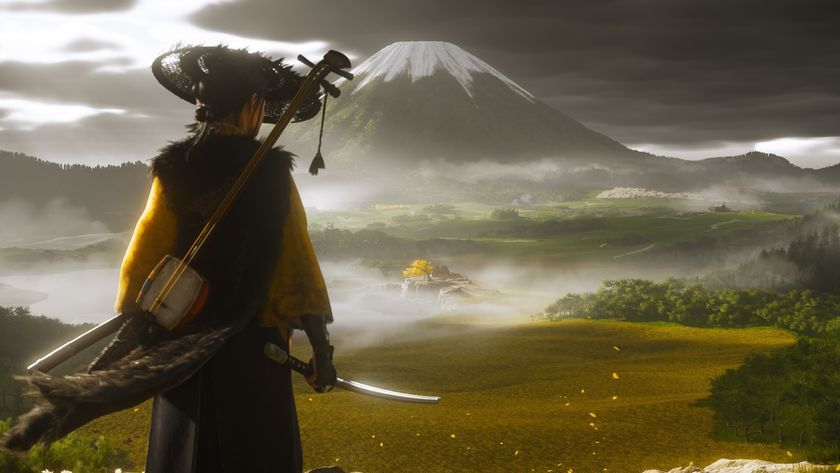How voxels, pink laser death and a shred of humanity made this breakneck arcade shooter an all-timer
Opinion | Nex Machina was a bullet-hell haven in every stretch of the genre

Housemarque may now be best known for PS5 exclusive Returnal, but its track record of turning out top-notch PlayStation games stretches back much further. Throughout PS3 and PS4’s lifespans, the Finnish studio established a reputation for reimagining all-action arcade classics with added depth and eye-melting visuals, culminating in 2017’s explosive Nex Machina.
At its heart, Nex Machina is a twin-stick shooter inspired by early ’80s coin-op Robotron 2084. In each compact level, hordes of killer robots charge towards you from all directions, and you blast them to bits before they can get you. Simple. But in Housemarque’s hands that basic template is made far more sophisticated – Nex Machina is to Robotron what the ceiling of the Sistine Chapel is to a prehistoric cave painting. That’s not least because it’s a visual feast. Following on from Housemarque’s PS4 launch title, Resogun, Nex Machina’s droids and landscapes are built from voxels, giving everything a chunky feel, but also enabling flashy effects – the way the ground ripples under the impact of explosions, for example, or how robots disintegrate into hundreds of tiny cubes.
Add to that the sprays of neon green and blue as you pelt your foes, plus the patterns of pulsing, rotating pink lasers that weave across your path, and you become an active part of a stunning display of pyrotechnics.
All killer


This feature first appeared in PLAY magazine - Subscribe here to save on the cover price, get exclusive covers, and have it delivered to your door or device every month.
Even more impressive is how slick Nex Machina is to play, and how easy it is to keep track of what’s going on despite the visual noise. And even more impressive still is how much there is to master. If you choose to indulge its score-chasing systems, it becomes clear: Nex Machina is more than a game about running and shooting. It’s a performance. The 15 short levels that make up each stage contain numerous optional objectives, and your mission – should you choose to accept it – is to complete as many as you can. For instance, you can find destructible beacons hidden in out-of-the-way places, and access secret levels by shooting panels hidden in the scenery.
Then there are robots called Visitors (long, segmented snakes that wind a set path through levels then disappear, forcing you to take them out quickly) and Disruptors (beetle-like bots that scurry away to hide in corners). The most head-splitting challenge, however, comes from trying to rescue the world’s last remaining humans, found scattered around each stage. Saving one is easy – simply run into them before the robots get their oily mitts on them – but real heroics entail keeping your human combo going. Yes, your human combo. When you grab a human, a timer starts to deplete. Grab another before it runs out (about five seconds), and it refills and your combo grows.
The trick is to acquire your homo sapiens at regular intervals throughout the entire stage to max out the combo. With that, Nex Machina becomes an adrenaline-fuelled puzzle. You plan optimal routes through each oddly shaped arena to catch ’em all, while remembering when and where the other bonus objects appear, and trying not to die. Timing is everything; rush to rescue the humans and the combo could run dry before you move to the next, but go too slow and you might leave one behind. And margins are tight. You often have to boost towards trouble to keep the meter running.
This is risk/reward play at full volume, and hugely challenging to pull off. In fact, in the second half of the game, most players will prioritise survival over rescues, as the robots belt out streams of purple plasma that stop even your usually reliable dash-dodge. Protecting a combo at this point is like trying to spin plates while somebody’s chucking baseballs at you, and thumping techno pounds in your brain.
Sign up to the 12DOVE Newsletter
Weekly digests, tales from the communities you love, and more
But that’s the beauty of this game. Each stage, a rush of six or seven minutes, is near-breathless as you finish one level and teleport to the next, and it embodies a purity of vision that’s deep in its challenge by design. If Housemarque wants us to hone our skills to perfection, Nex Machina shows the studio’s done the same.
This feature first appeared in PLAY magazine - Subscribe here to save on the cover price, get exclusive covers, and have it delivered to your door or device every month.
Jon Bailes is a freelance games critic, author and social theorist. After completing a PhD in European Studies, he first wrote about games in his book Ideology and the Virtual City, and has since gone on to write features, reviews, and analysis for Edge, Washington Post, Wired, The Guardian, and many other publications. His gaming tastes were forged by old arcade games such as R-Type and classic JRPGs like Phantasy Star. These days he’s especially interested in games that tell stories in interesting ways, from Dark Souls to Celeste, or anything that offers something a little different.











